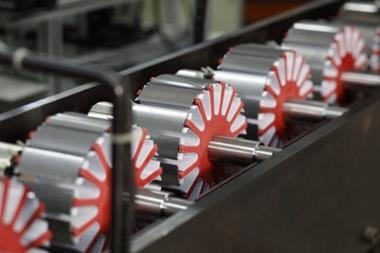As data shows that recalls are increasing across food, consumer products and automotive, we look at what risk managers can learn from the past and how to minimise the threats for the future
Product recalls can have significant effects for businesses, ranging from legislatory and financial consequences to reputational issues and falling customer demand.
Despite this, product recalls are rising according to RQA Group’s Product Recall Report for 2023, which examines recall data from authorities across the UK, EU, USA, Canada, Australia and New Zealand.

The report looks at three main areas, food recalls, consumer product recalls, and automotive recalls, all three show significant causes for concern.
Vince Shiers, managing director at RQA Group, says: “Looking back can help with understanding future risks and horizon scanning, a favourite topic of risk managers.”
Report highlights
- Largescale recall events are driving average number of different products recalled per FDA recall event to the highest since before 2017.
- Cosmetics accounted for over a third of EU Safety Gate recalls, which drove numbers to a record high for recent years in 2023.
- US CPSC (Consumer Product Safety Division) data shows a significant increase in number of recalls – there were over 10% more recalls than 2022, an already record year in the US.
- NHTSA (National Highway Traffic Safety Administration is an agency) reported over 39 million potentially affected units in 2023 with an average of over 40k units per recall event.
Risk management lessons from food recalls
The data in the RQA recall report shows that most food recalls in the US, UK, Canada and Australia are due to microbiological contamination (e.g. listeria and salmonella) and allergen labelling issues.
This has been pretty consistent for the past few years and shows the importance of extra focus being put on preventing these types of food recalls.
Also, of the US FDA food recalls in 2023, 46% could be classed as Never Events meaning the allergens aren’t correctly listed.
What is a Never Event
A category of recall defined by RQA as an event that is dangerous and should not happen e.g. putting the wrong label on a product (or putting a product in the wrong pack).
In the UK, over 30% of all food recalls reported by the Food Standards Agency (FSA) in 2023 could be classed as Never Events.
Shiers says: “If there is one area for risk managers and quality personnel to focus on, it is making sure that more effort is put into preventing this type of product fault. Such action would significantly reduce the number of food recalls.”
“Risk managers will seek contaminated products or recall insurance cover which can protect their balance sheets from potentially catastrophic events.”
Another finding from the US FDA data is that the number of different products recalled per recall event is increasing. This means that in general recalls are getting broader and there are some very large recalls.
Businesses must ensure they are prepared for these larger recalls, making sure their recall plans are fit for purpose, their teams are well trained and they have the right insurance in place.
Shiers says: “In such a climate of increasing scale of recalls, risk managers will seek contaminated products or recall insurance cover which can protect their balance sheets from potentially catastrophic events.”
Learning from consumer product recalls
In the area of consumer products, recall numbers are rising substantially in the US and the EU where record high numbers were seen in 2023.
These recalls can also be very large scale, with over 134 million units recalled in the US in 2023.
Shiers says: “Risk managers who may never have faced a recall situation, may find themselves facing a nationwide or international recall involving vast numbers of products.
“This requires effective leadership, training, communications and resource management to ensure the company survives such an incident. Risk managers will likely be “in the thick of it” and will be relied upon to help the company come through the ordeal and eventually back to usual business.”
“Looking at recent product recall trends can help understand where issues may arise in the future; and therefore where to focus limited resources.”
Automotive recall threats
Finally, in the automotive sector, recalls are changing as the market for vehicles change with more electric cars, increased sophistication in sensors and software.
Software is likely to become an increasing cause of automotive recalls as more of the car is controlled by computer systems.
Of course, there is also an advantage with software, in that it may be updated “over the air” (OTA), without the need for recall action.
The RQA report highlights some cases of software errors that have resulted in recall. This shows that the automotive risk managers’ role may also need to evolve to be more computer focused.
Shiers concludes: “The role of the risk manager in all sectors is ever-broadening and evolving. This results in more challenges, but looking at recent product recall trends can help understand where issues may arise in the future; and therefore where to focus limited resources.”














No comments yet